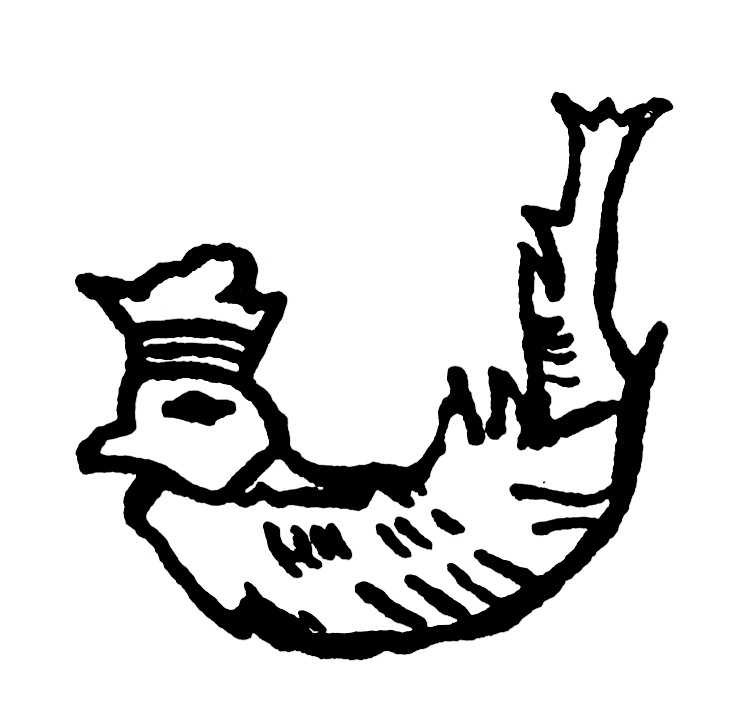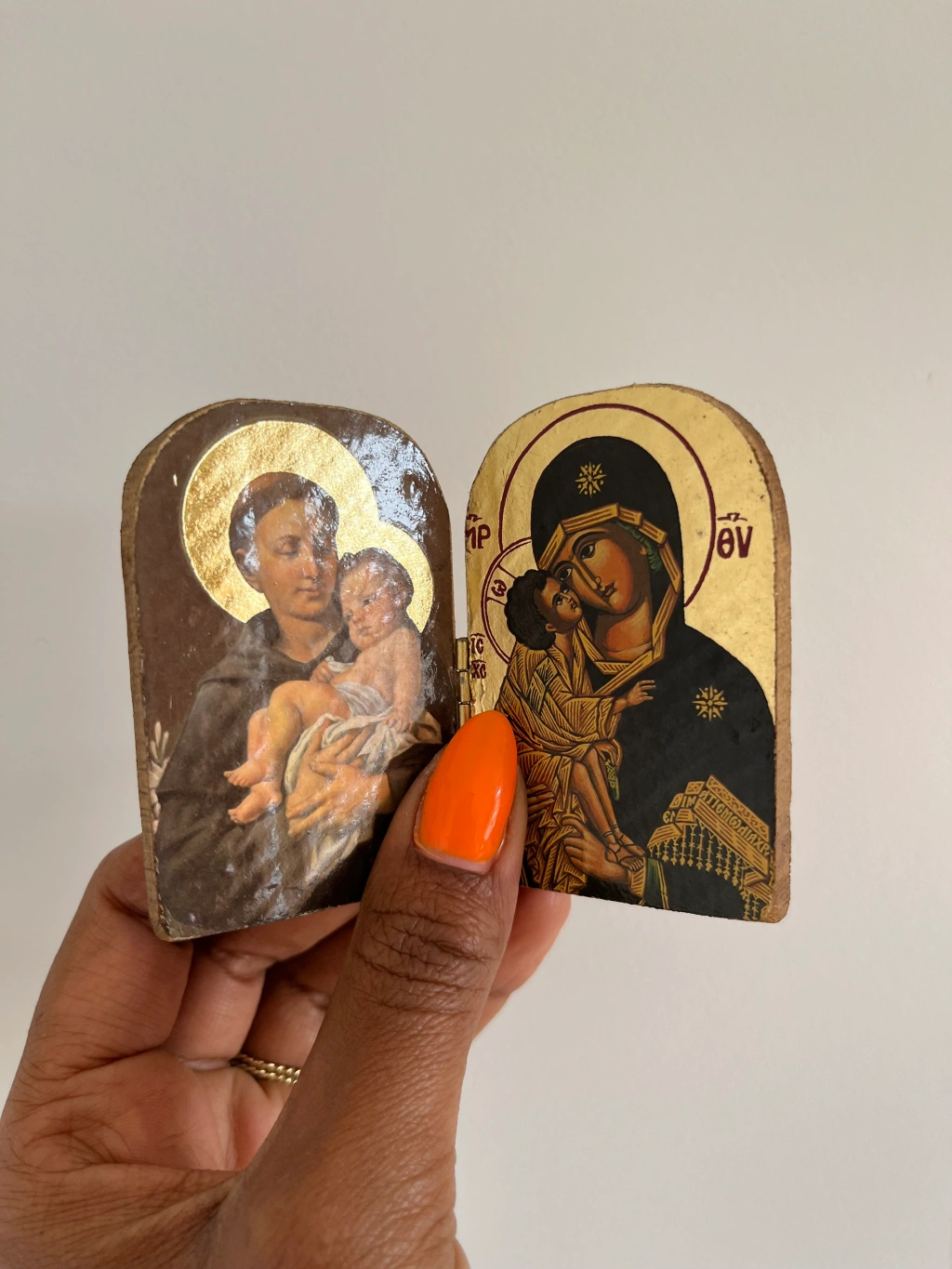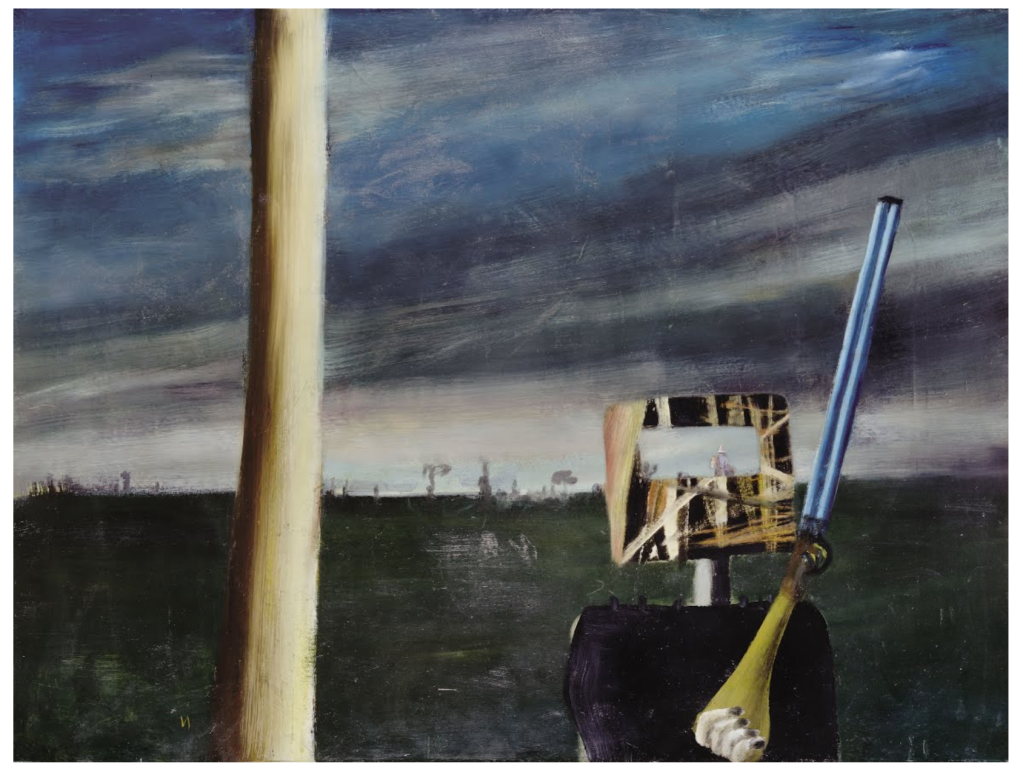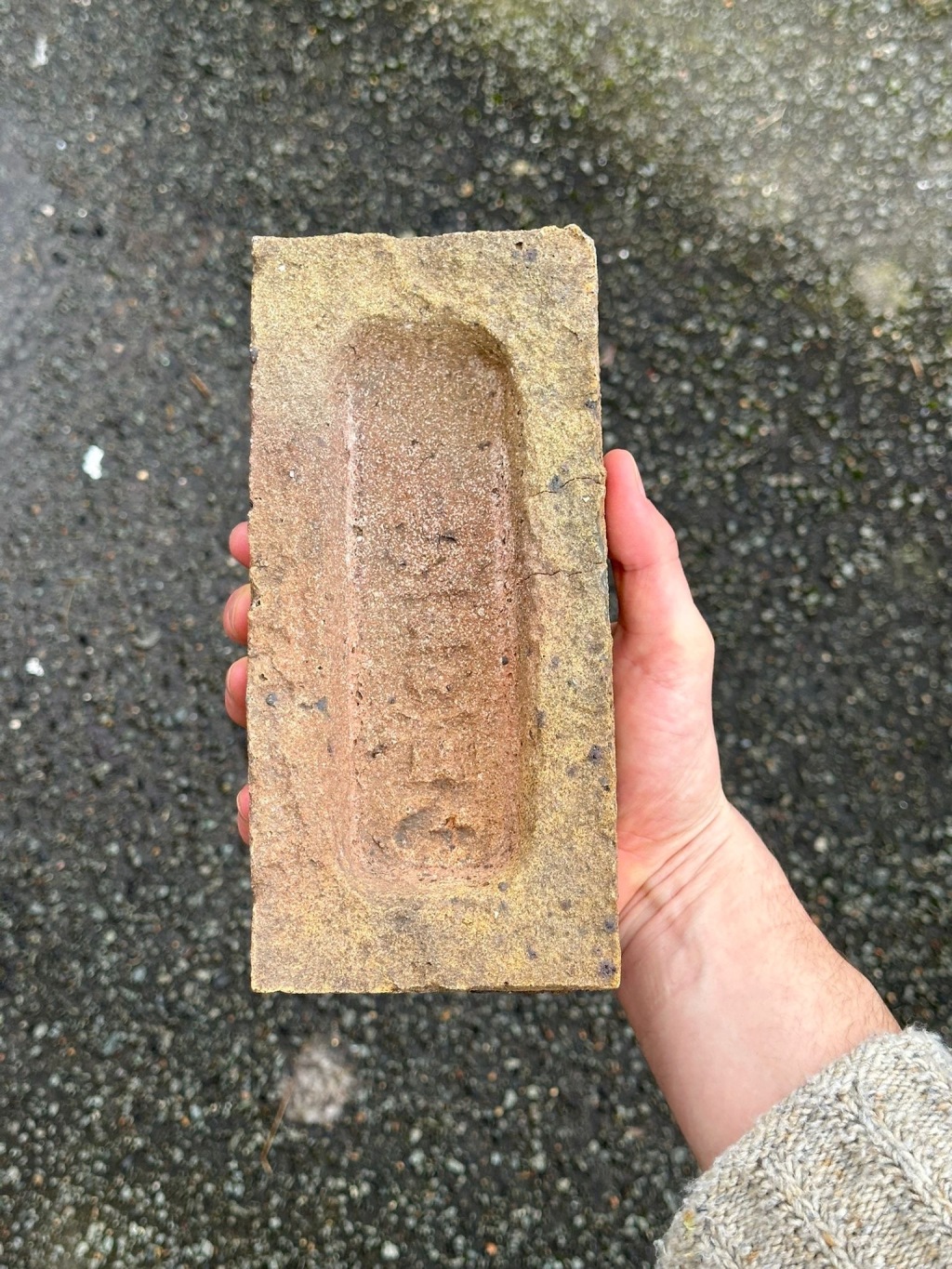
Stefanos Geroulanos, historian, on a fan belonging to his family which is signed by the delegates of the 1878 Berlin Congress.
GB Tell me what this is and why you chose it.
SG This is a folding fan made of cherrywood. It is in my father’s possession, originally owned by his great-grand-mother Despina Caratheodory. She was the wife of Stefano Caratheodory, Ottoman ambassador to Brussels and one of two members of the Caratheodory family who made up part of the delegation of the Ottoman Porte to the 1878 Congress of Berlin (the other was his uncle, Foreign Minister Alexander Caratheodory Pasha). On each of its wooden blades is inscribed, in ink, the signature of a statesman present at the event. And so you have Gorchakov, Chancellor of the Russian Empire first on the left, followed by British PM Benjamin Disraeli (signing as [Lord] Beaconsfield), then Bismarck, Chancellor of Germany, Gyula Andrassy, Foreign Minister of Austria-Hungary, and so on. In other words, at some point in the Congress, it was agreed upon that the participants would sign fans for some of the spouses who were also attending. Or, less likely and more fun, that on the last day of the Congress, the smart or strategic spouses went around and got everyone to sign identical fans as mementos.
I chose it for several reasons. First, I am fascinated by regalia of power, the stuff into which sovereignty is invested. Second, it belongs to that category of objects that carry a peculiar aura because they have been handed down within our families. Things we all have that, regardless of their value or even their beauty, leave us somewhat enchanted and help define our own sense of the beautiful. My family acted as though it was such a normal thing to have that I didn’t really have any sense of it until recently. And third, there’s a rather eerie beauty to the fan itself.
It is rather bare, almost unadorned, except for the outer panel. The wood has a curious tactility to it, the lightest of fissures. Then there’s the now-decayed gold leaf thread that unites the different blades, and one should not fiddle with it, or even use it, to avoid harming the thread. And the signatures on it, taking the place of any painting or carving of the blade. So there are the Great Powers carving up Eastern Europe and my great-great-grandmother was perfectly happy to go home with a memento of all the famous people having signed her fan. Just as they would sign the 1878 Treaty that carved up South-Eastern Europe, that altered and reduced the break-up of the Ottoman Empire (her Empire) that had been imposed in the Treaty of San Stefano shortly before. So they convey a sense of someone who is excited to have access to power, they institutionalise a certain coquettishness—on the part of both of the owner(s) and all the signatories.
GB The fan is so beautifully divided up and yet it represents this huge conflict over territory. Does that side of it bother you?
SG Not especially, if anything it adds to the aura. They would have carved up the borders of all these countries anyway. I suppose the idea of a souvenir, of the Congress as also a kind of salon with party time, is outrageous. Especially once you think of how the Congress set up tensions that would contribute to the origins of World War I. But then, don’t people always do this, try to make power beautiful? But it seems to me that my fascination with the object is not tied to glorifying the Congress. Rather, 135 years later, unless you’re a historian and really care about that moment, it’s merely an object that carries that now-faded moment, and so the choice and look of the object matters differently, it opens up that world. And that’s a value that is so easily lost—you don’t have a sense of its importance without the oral history that comes with it. I find that rather fascinating. The signatures are so singular, there’s this very personal element to them. They signed it in a moment of calm or relaxation—or even irritation about having to sign a fan as part of the ritual. Perhaps they were taking a break—and such breaks would have been equally important. Maybe Berlin was super-hot in the summer of 1878, and the fan was an inside joke, an apology to the wives for having kept them in a meteorological and geopolitical heat. So the signatures have a beauty in themselves by virtue of who they raise from the dead, and how. Bismarck’s thick signature eats up the whole blade and ends in this clunky K; it’s like he dunked his pen much deeper into the ink and needed to write that K with all the ink he had left. Disraeli’s is elegant by comparison—though nowhere near as elegant as Launay or Saint-Vallier [Waddington, the French Minister of Foreign Affairs]. You can dream up a whole geopolitics of stereotypes out of them.
GB What came first for you in terms of the beauty? The family connection the object itself, the historical importance?
SG I think the object itself and then, intertwined and slowly unfolded, the family connection and the historical aura—but then again it’s not like these different elements are dissociable. Somehow the bareness of it. Even without the signatures it would be beautiful. The gesture of opening it and the whole elaborate fantasy of using it appeals to me. Then there are the weird political inscriptions. There is no contract value in this signature but there’s the force of them all on top of each other, and then next to each other. You hold them in your hand. Then the family connection somehow sets it in, the family unconscious that you sort of learn over time and that leads you to restore these things, to identify with them. There’s nothing beautiful to the event, and yet so much is inscribed here and given a whole different life, than the Treaty and the territories and the violence and the deaths that would follow in remaking these territories.
But the personal relation that I have to it somehow works to make it beautiful, this family unconscious that comes back and re-imposes itself, because otherwise this kind of family object becomes mere stuff that loses itself in the geography of our lives. Over the years, this became identified with a past family glory, something to keep and remember with, and so it was kept like an old art object—it identified the family itself as much as the people who had signed it. Having grown up in a family that was invested in its own heritage, I was always happy to run away and do my own thing, but eventually it caught up, and then you wonder what role these things play in how you come to look at the world as you were running away. The fan seems to have nothing to do with my usual aesthetic yet I can’t help but find it beautiful. So I very much like the idea that these objects we grow up with re-establish themselves, maintain a kind of control, which resurfaces and recrafts our sense of beauty. And then they become precious, in both senses of the word.
GB Do you think part of the reason for wanting these signatures was a desire for physical evidence that the family were part of this world power?
SG Surely. That’s why they kept and cared for it. I imagine she was happy to be with all the stars and it was for her the most important moment of her husband’s public life (she died only a year later). She could show off in slightly Proustian fashion to those she would bring into her house, to other people in Phanariot or more broadly Ottoman high society. I suppose that this was a mark of class; by the measure of power, at least, it meant you’d been to the highest salon of 1878. So the fan was kept on display with other family artifacts (keimilia), though not during my lifetime; another fan like this, which additionally carries the date July 13, 1878, is still on display in Hughenden Manor in High Wycombe. (Now of course this means nothing—if we measure by Wikipedia, she and her husband only appear on the page of their much more famous son Constantine, who was a mathematician.)
But there is more: in this sense of belonging with “these people,” of carrying them on oneself, in something as slight as a fan, there is also an inverse function of representing the Congress through one’s person and one’s signature. The signature is not only in the official documents, where the statesmen spoke largely on behalf of their states. In signing items they gave to each other—to their wives— they also reassert a certain sovereignty as these statesmen, as themselves. The signatures they’ve shared with one another are signatures that mark themselves as decision-makers, as parties to an international treaty, as more or less sovereign, but also as people who live with folding fans. They thus return, physically and literally carrying the Congress with them, representing this group.
GB What does this moment in history mark for your family? Hope or foreboding before the First World War? From our history lessons, it’s when Disraeli starts to become worried about the Germans.
SG That’s right. Germany was now the big European power, and everyone now knew it. Certainly it looked as though things are resolved and fairly stable for a while. Except it’s also tricky given the newer limits on the reach of the big Eastern-European empires—Russia, the Ottomans and the Habsburgs. None of that gets written into the fan which is the part I find most amusing about it: a wonderfully sanitised version of those power games. Greeks like to remember Alexander Caratheodory for having pushed back on Russian and Pan-Slavist demands that Greece get nothing out of the Congress; for the Ottomans more broadly, this was a much better deal than that of San Stefano, given their loss of the Russo-Turkish War. With regard to “the family” I don’t know. On the political and personal level, clearly the envoys were happy that they secured a decent deal. But this feels so distant, so Old-Europe—I doubt that one could unlock a definitive meaning, or what it meant to their standing, or that I could even exactly speak of “my family” by connecting to their pleasures and anxieties. The fan itself comes separated from any such sense—with an aesthetic and as part of a lore but separated from any meaning personal to its original owner.
GB What makes something worthy of the word Beauty to you?
SG It has to be something that evokes a whole climate (film is important to my sense of beauty). It would have to have some shock value, to surprise or astonish. An intellectual value comes after, also an anti-intellectual value too, that it must exceed the rationalisation, gnaw at you. Beauty is then persistent and tenuous. And the fan has such an extremely tenuous relationship with beauty, in this suspension of time that it momentarily enforces, this breathlessness that a fan is supposed to alleviate; it’s why I wanted to talk about it and preserve it here.




